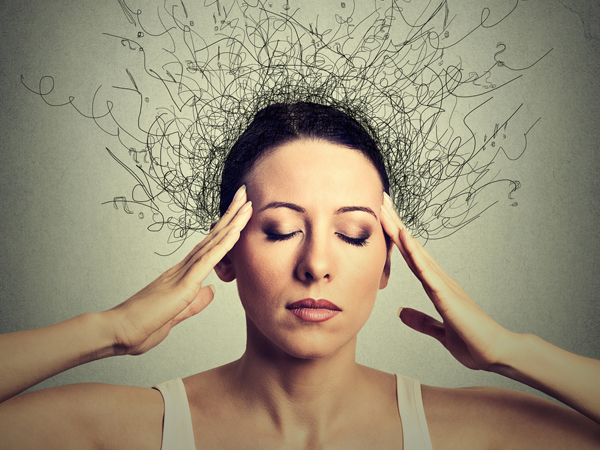Just In
- 1 hr ago

- 2 hrs ago

- 3 hrs ago

- 10 hrs ago

Don't Miss
- Automobiles
 New Features Of The Ultraviolette F77 Mach 2: Uniting Performance, Safety, And Technology
New Features Of The Ultraviolette F77 Mach 2: Uniting Performance, Safety, And Technology - Sports
 IPL 2024: Why did Rishabh Pant Apologize to Cameraperson after GT victory?
IPL 2024: Why did Rishabh Pant Apologize to Cameraperson after GT victory? - Movies
 Aadujeevitham Box Office Collection Day 29 Prediction: Strong Overall Performance Amidst Recent Decline
Aadujeevitham Box Office Collection Day 29 Prediction: Strong Overall Performance Amidst Recent Decline - News
 Sonia Gandhi Shed Tears For Terrorists Killed In Batla Encounter: BJP Chief Nadda
Sonia Gandhi Shed Tears For Terrorists Killed In Batla Encounter: BJP Chief Nadda - Finance
 Trade Setup: Nifty Continues Winning Streak Ahead of April F&O Expiry, Q4 Earnings In Focus
Trade Setup: Nifty Continues Winning Streak Ahead of April F&O Expiry, Q4 Earnings In Focus - Education
 JEE Main Result 2024 Out, Telangana's 15 Toppers Shine, Check Statewise List of 56 Candidates with Perfect 100
JEE Main Result 2024 Out, Telangana's 15 Toppers Shine, Check Statewise List of 56 Candidates with Perfect 100 - Travel
 Escape to Kalimpong, Gangtok, and Darjeeling with IRCTC's Tour Package; Check Itinerary
Escape to Kalimpong, Gangtok, and Darjeeling with IRCTC's Tour Package; Check Itinerary - Technology
 OPPO Find X7 Ultra Camera Deep-Dive: Pushing the Boundaries of Photography on a Smartphone
OPPO Find X7 Ultra Camera Deep-Dive: Pushing the Boundaries of Photography on a Smartphone
Everything You Need To Know About Psychosomatic Disorder
Psychosomatic disorder refers to a physical illness or disease that is thought to be caused by mental factors like depression and anxiety or stress, according to The Center for Treatment of Anxiety and Mood Disorders. In this article, we will write about the causes, symptoms and treatment of psychosomatic disorder.
Some of the physical diseases are made worse by mental factors such as anxiety and depression. And a person's mental state can affect the degree of severity of a physical disease.

So, What Exactly Is Psychosomatic Disorder?
When a physical disease is thought to be caused by mental factors, it is referred to as a psychosomatic disorder. 'Psyche' means the mind and 'somatic' means the physical signs and symptoms that are visible for the disease.
Psychosomatic disorder includes diseases or conditions like stomach ulcers, eczema, psoriasis, high blood pressure and heart disease.
Depending on an individual's temperament and mentality, these physical diseases or conditions can affect a person's mental health largely. Psychosomatic disorders also affect the respiratory system, gastrointestinal system and the cardiovascular system, according to The Center for Treatment of Anxiety and Mood Disorders.

Causes Of Psychosomatic Disorder
Many
noted
studies
have
revealed
that
there
is
an
increased
nerve
impulse
activity
from
the
brain
to
various
parts
of
the
body
when
you
are
anxious,
depressed
or
stressed
which
is
a
contributing
factor
for
the
physical
symptoms.
A
number
of
other
factors
may
also
play
a
role
in
psychosomatic
disorder
like
genetic
or
environmental
family
influences,
biological
factors,
personality
traits,
learned
behaviour
and
so
on.

Signs And Symptoms Of Psychosomatic Disorder
1.
Rapid
heart
rate
2.
Nausea
and
palpitation
3.
Pain
4.
Dry
mouth
5.
Tremors
6.
Perspiration
7.
Chest
pain
8.
Faintness
9.
Rapid
breathing
10.
Fatigue
11.
Gastrointestinal
problems
12.
Neurologic
problems
Types Of Psychosomatic Disorders
Psychosomatic disorders are divided into seven types:
1. Undifferentiated somatoform disorder - A person experiences one or more above-mentioned symptoms for a minimum of six months.
2. Somatization disorder - This disorder is a type of mental illness that causes one or more bodily symptoms which include pain, gastrointestinal and neurologic problems.
3. Unspecified somatoform disorder - When symptoms from two or more different types of somatoform disorders are identified, it is referred to as unspecified somatoform disorder. These symptoms vary but centre around complaints about pain.
4. Illness Anxiety Disorder (Hypochondriasis) - People with this disorder believe that even a mild condition is a serious disease. They think that minor symptoms are signs of very serious medical problems, for example, a headache is a sign of brain tumour.
5. Conversion Disorder- Researchers say that this disorder occurs in response to an emotional or physical trauma. The signs and symptoms of this type of disorder include the inability to make a sound, unconsciousness, dropping of the eyelids, sudden illness attacks, vision problems and loss of sensation in one or more body parts.
6. Pain Disorder - Experiencing pain in one or more body parts over a long period of time due to psychological stress. The pain is often severe and could last for a few days to years.
7. Body Dysmorphic Disorder- People with this type of disorder feel that their body is defective. They keep thinking about their flaws and often opt for cosmetic surgeries to improve their appearance.

Treatment For Psychosomatic Disorder
Cognitive behavioural therapy is the first option of treatment for a psychosomatic disorder. This therapy aids the patients to learn new ways to cope with problems and solve them as well as help in gaining a deeper understanding of their condition. It further helps them to learn to set realistic life goals and identify behaviours or thoughts that have negative effects on their lives.

Medications are given to alleviate the some of the physical symptoms which include tricyclic antidepressants, serotonin reuptake inhibitors, atypical antipsychotics, serotonin and noradrenaline reuptake inhibitors and herbal medications. Depending on the age of the patient, duration, intensity of the disease and treatment, different combinations of drugs are prescribed.
Yoga is another treatment for psychosomatic disorders as it's known to have a calming effect on the body, makes you aware of your surroundings and lets you accept yourself. It also helps in busting stress and other mental conditions if done on a daily basis.
Share this article!
-
 disorders curePseudobulbar Affect (PBA): The Medical Condition Behind Joker's Laugh
disorders curePseudobulbar Affect (PBA): The Medical Condition Behind Joker's Laugh -
 disorders cureDepersonalization-Derealization Disorder: Causes, Symptoms, Diagnosis And Treatment
disorders cureDepersonalization-Derealization Disorder: Causes, Symptoms, Diagnosis And Treatment -
 disorders cureEpisodic Ataxia: Types, Symptoms And Treatment
disorders cureEpisodic Ataxia: Types, Symptoms And Treatment -
 disorders cureSchizophrenia: Causes, Symptoms And Treatment
disorders cureSchizophrenia: Causes, Symptoms And Treatment -
 disorders cureAlzheimer's Disease: Causes, Symptoms, Diagnosis, Treatment & Prevention
disorders cureAlzheimer's Disease: Causes, Symptoms, Diagnosis, Treatment & Prevention -
 pulse#SocialForGood For Mental Health Awareness
pulse#SocialForGood For Mental Health Awareness -
 wellnessHow To Help Someone With Anosognosia?
wellnessHow To Help Someone With Anosognosia? -
 wellnessSuffering From Brain Fog? Here's How You Can Treat It
wellnessSuffering From Brain Fog? Here's How You Can Treat It -
 wellness10 Myths And Facts About Mental Health
wellness10 Myths And Facts About Mental Health -
 wellnessAir Pollution Can Affect Your Mental Health Says Study
wellnessAir Pollution Can Affect Your Mental Health Says Study -
 wellnessSuffering From PCOS? Then You Might Be At A Risk Of This
wellnessSuffering From PCOS? Then You Might Be At A Risk Of This -
 nutritionWorld Mental Health Day 2020: Foods That Will Keep You Mentally Fit
nutritionWorld Mental Health Day 2020: Foods That Will Keep You Mentally Fit


 Click it and Unblock the Notifications
Click it and Unblock the Notifications



